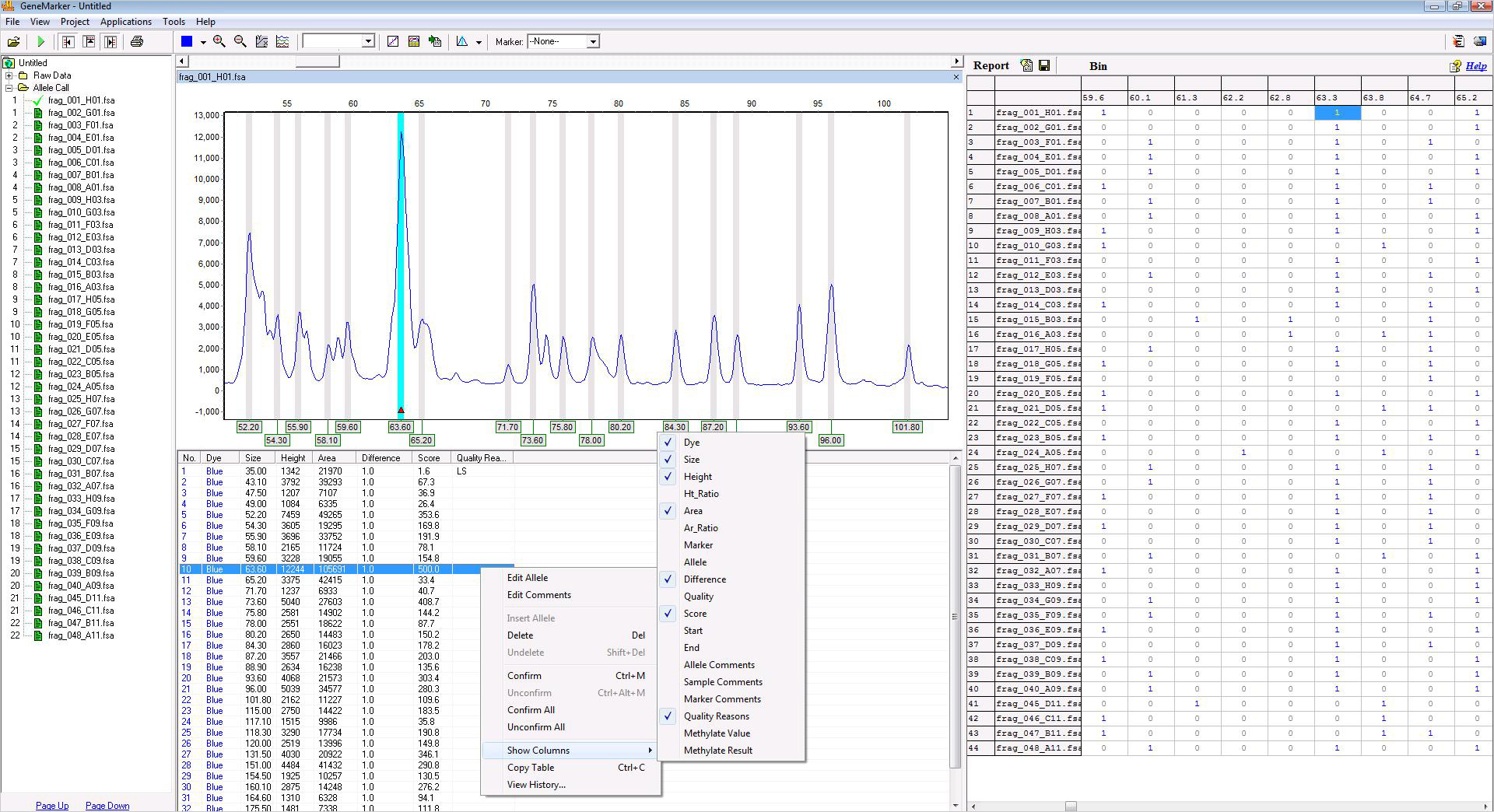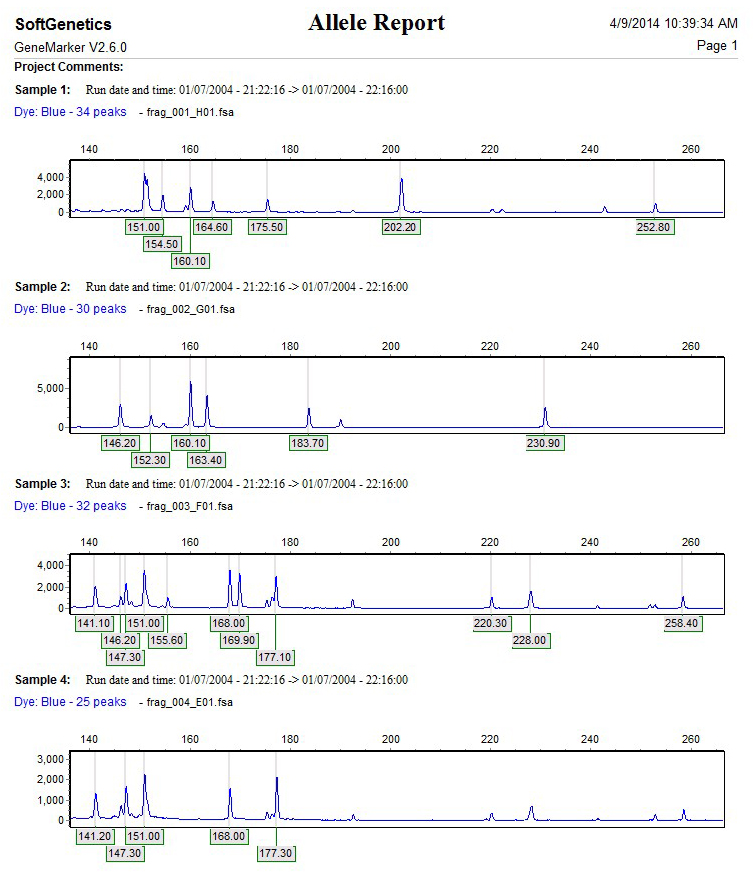T-RFLP (Terminal-Restriction Fragment Length Polymorphism) Analysis for Microbial Diversity and ARISA (Automated Ribosomal Intergenic Spacer Analysis)
T-RFLP is a PCR based genetic fingerprinting technique for the study of microbial community structure based on variation in the 16S rRNA gene. These DNA fragments are commonly separated using capillary electrophoresis. One of the primers of a primer pair is labeled with fluorescent dye and used to amplify a selected region of a gene of interest by PCR. The resulting PCR fragment is digested with one (or more) restriction endonuclease(s) and the Terminal Restriction Fragments (T-RFs) are separated with an automated DNA analyzer (ABI PRISM®, Applied Biosystems® SeqStudio™ or Spectrum Compact CE Systems.). Microbial diversity in a community can be estimated by analyzing the number and peak heights of TRF patterns.
GeneMarker software has the ability to produce highly sensitive and reproducible results for T-RFLP analysis and Automated Ribosomal Intergenic Spacer Analysis (ARISA) by adjusting the AFLP Analysis default settings. Report tables may be printed or saved for import into other T-RFLP analysis software, such as T-REX.
GeneMarker® software's Large Fragment Sizing Technology expands and reduces the cost of these techniques by affording extended multiplexing opportunities.
T-RFLP Data Analysis

Figure 1: The peak table displayed below the sample electropherogram shows the option menu for editing items within the table. Clicking the right mouse button with the cursor on a highlighted cell will activate the editing menu.
GeneMarker Print Report Example

Figure 2: Comparison of electropherograms from four samples.
Application Notes:
MLPA® is the registered trademark of MRC Holland













